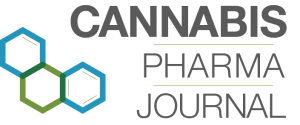GW Pharmaceuticals Announces Preliminary Results of its Cannabis-Based Drug in Patients with Ulcerative Colitis
Today, GW Pharmaceuticals announced preliminary top-line results from its in-development treatment for ulcerative colitis (UC), saying that the drug failed to meet its primary endpoint in a mid-stage trial.
The drug, GWP42003 extract, features Cannabidiol (CBD) as the primary cannabinoid and which also contains Tetrahydrocannabinol (THC) and other cannabinoid and non-cannabinoid components. The Phase IIa pilot trial, comparing GWP42003 to placebo, included 60 adult patients with UC who had not been able to gain remission from the condition despite first line treatment with salicylates, and in some cases immunosuppressive therapy.
In the 10-week randomized study, GWP42003 was given as a twice daily oral capsule in a dose titration regimen with an upper target dose of 250mg twice daily. The primary endpoint of the study was the percentage of participants achieving remission quantified by the MAYO score and included a range of secondary measures to determine whether the investigational drug has a positive benefit for subjects on symptom control.
Among the individuals in the treatment arm, 41 percent achieved disease remission compared to 30 percent taking placebo. This difference was not considered statistically significant. Among the 29 individuals randomized to receive GWP42003, 12 dropped out due to minor THC-related adverse events, such as dizziness. However, among the 17 patients who continued the study, a group called the protocol-compliant population, the Inflammatory Bowel Disease Questionnaire was significantly in favor of GWP42003, as was the Physician Assessment of Disease severity. At the end of the treatment period, in the per protocol group, the physician assessed 82 percent of patients in the GWP42003 group as having normal or mild disease, compared with 52 percent in the placebo group. The Patient Global Impression of Change showed that 93 percent of the patients in the per protocol population regarded their condition as “improved,” compared with 60 percent of the placebo group. Both of these differences were considered statistically significant.
“There is a substantial unmet need for an effective treatment in patients with mild to moderate ulcerative colitis who have failed to enter remission following first line therapy or relapse whilst taking maintenance therapy. In particular, both physicians and patients recognize the importance of avoiding steroids due to their side effect profile,” said Dr. Peter Irving Guy’s Hospital, London, and Chief Investigator of the study. “These results provide promising evidence that GWP42003 may produce clinically relevant improvement in the severity of ulcerative colitis compared with placebo, in patients who complete a course of treatment.”
Source: GW Pharmaceuticals plc
Last updated: 10/14/14; 1:35pm EST



